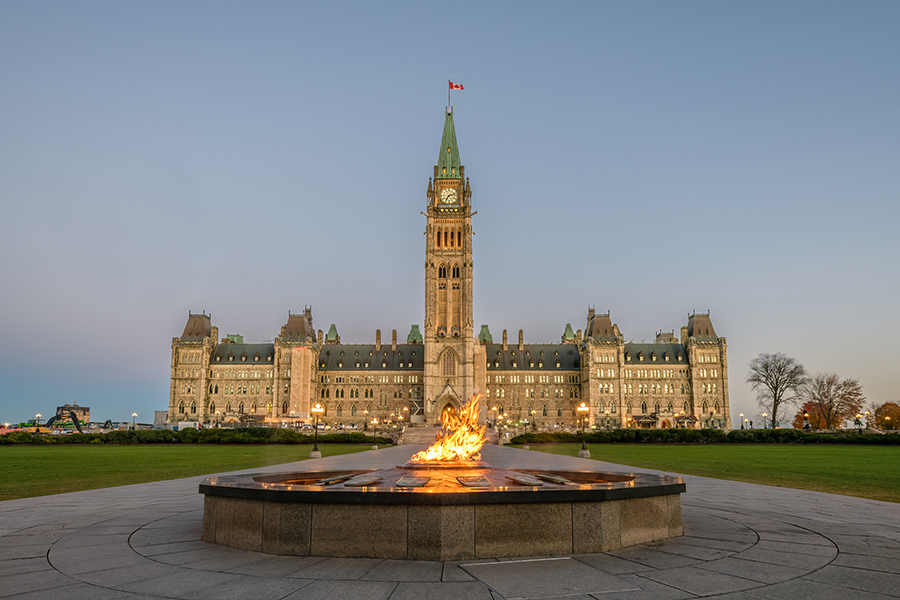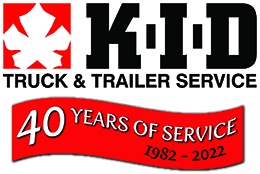
This year, 2025, was supposed to see the trucking industry experience a modest turn-around in the ongoing freight recession. An expectation obliterated by the on-again, off-again Trump’s tariffs. Everyone is bracing for another rocky year with cratering consumer demand, tighter operating margins, and more economic uncertainty. For many transport companies already struggling, this could be the final nail in their coffin.
While Canada and Mexico have been spared the worst of proposed economic penalties, it’s caused a major shift in Canadian sentiment towards our biggest trading partner. Canadians are among the most likely to avoid American brands due to U.S. trade policies. It’s always been challenging to define Canadian culture but we’re certain about one thing, “We’re not Americans.” From pulling U.S. alcohol from Ontario shelves, canceling trips to southern destinations and a visible, “Buy Canadian” presence, Canadians are expressing an enthusiastic commitment to national sovereignty.
Too Much of a Good Thing
Canada is known for its superior quality of life, safe cities, peaceful and polite citizens, and stunning natural landscapes. Canadians are fortunate to experience many things in abundance with some national parks bigger than countries. We know we’re chosen people and deeply appreciate why many people want to come and live here. We are different from Americans.
Canadians are easier to please, which is often mistaken for complacency. Occasionally our righteous indignation flares but it typically settles back into our comfortable status quo. Canadians for the most part, are humble and modest in their material ambitions. Being satisfied with what one has can be perceived, as lazy and unambitious. Or a natural response to hyper-competitive and heavily-financialized marketplace?
Canada has modeled its quality-of-life standards on European versions, which means citizens enjoy more social privileges and legal protections than American counterparts. We’re not a class-based society and believe in a higher social standard for equality. We’re known as being risk-adverse, conflict-avoidant, trusting and famously tolerant. Canadians believe our Great White North is a collective benefit to all Canadians and not exploited for personal gain. We have high trust in government institutions like Elections Canada.
It may be our famous tolerance, which has contributed to this moment in time. While generally considered a positive trait, excessive tolerance can become an issue. It leads to acceptance of disrespectful behaviour, undermines healthy boundaries, and eventually creates a backlash, promoting intolerant behaviour.
Globally-recognized as a welcoming place for immigrants, Canadians have generally been accepting because it’s seen as an investment in a mutually-prosperous future. Consistently ranked as one of the top ten happiest countries, Canada achieved a peak ranking of #5 in 2015. In the ensuing decade, it’s been a steady decline. In 2025, Canada ranked 18th globally, its lowest spot since reporting began in 2005. While Canada remains the happiest country in the G7, overall happiness and quality of life are dramatically slipping.
Canada Sentiment Shifted
It’s expensive to live in Canada with high taxes and exorbitant housing prices. In return for these significant financial burdens, Canadians expect safe cities, good schools, universal healthcare that works and affordable groceries. Between 2019 and 2023, immigration to OECD, “rich” countries increased 28%. After welcoming millions of immigrants to Canada, we’re plagued by housing shortages, an affordability crisis, and a sense of diminishing expectations. People lose faith when they experience a widening gap between the promise of Canadian life and the ability to meet those expectations.
Canada’s per capita GDP has been shrinking by 0.4% a year since 2020, the worst of the fifty most developed, OECD economies. Productivity fell from 81% of the American level in 2000 to 68% in 2023. Lagging productivity has direct economic impact: stagnating tax revenue means higher debt servicing costs and less money for infrastructure such as hospitals, schools and roads.
Stagnating wages leave young families priced out of the housing market. Canadian immigration tends to be focused in high-density urban areas, like Toronto and Vancouver, with existing housing shortages. Wages have been undermined by high-levels of immigration, especially temporary foreign workers.
But something even more essential is being lost…it’s trust in being Canadian. The proportion of Canadians who trust other Canadians to do what’s right has dropped from 72% in 2022 to under 60% two years later, continuing to decline. There’s a direct correlation between high levels of interpersonal trust and happiness; and, between interpersonal trust and consumer confidence. When trust begins to decline, it’s something to worry about. It leads to valuing things over people and treating people like things.
Reason for Hope
Having a “store-front” location informs your perspective on what people value. Every day, people walk through the door and share what they’re thinking. There’s been a noticeable shift over the last couple of years, coinciding with the Freedom Convoy. Canadians were tolerant of complacency. It’s not that we didn’t notice what was happening. In typically conflict-avoidant fashion, we didn’t feel we could openly say what we were “all” thinking.
Canadians are well-educated with over 70% of the population having a post-secondary education, compared to ~ 30% of Americans. Wages have traditionally been lower, to create more equality in our economy. Employing more people than is currently necessary, leaving work to coach a hockey team or taking all your vacation time leads to lower productivity levels but it means workers will be happier with their quality of life.
For the most part, we like and respect fellow Canadians. We’re somewhat aligned on the causes of current challenges and focused on national unity. Governments appear to be recalibrating immigration levels to reflect the realities of urban housing markets. Buy Canadian will likely become a permanent fixture. Hope comes with the expectation of meaningful opportunity. Hopefully, this is Canada’s opportunity to develop a deeper appreciation and worthier demonstration of what it means to be Canada Proud.
Tags: Annual Safety for Trucks and Trailers, buy Canadian, canadaproud, Canadian transportation, Commercial Fleet Maintenance, family-run business values, heavy duty diesel vehicles, heavy duty trucking, hope for Canada proud, proud to be Canadian, Support small-businesses, truck and trailer parts burlington, truck and trailer parts milton, Truck and trailer parts Mississauga, truck and trailer parts oakville, truck and trailer repair Burlington, truck and trailer repair Mississauga, truck and trailer repair Oakville, truck and trailer safety, truck and trailer service burlington, Truck and Trailer Service Mississauga, truck and trailer service oakville, truckpro halton region
